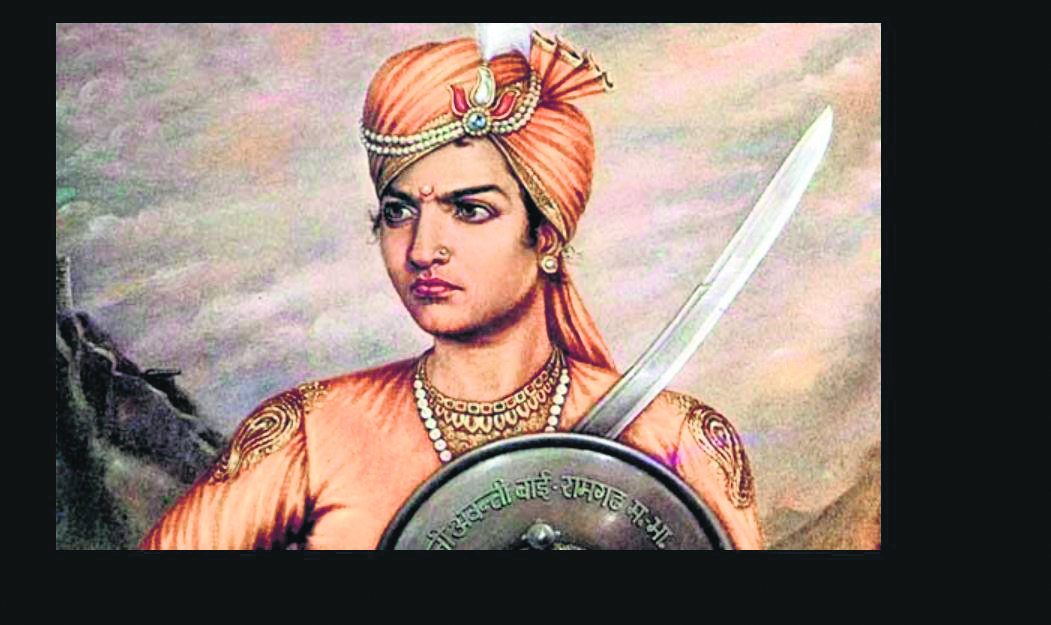Rani Avantibai Lodhi stands as a symbol of courage, resilience, and unwavering determination in the annals of Indian history. Born into the Lodhi community, Rani Avantibai was married to Raja Vikramaditya Singh, the ruler of Ramgarh state in present-day Madhya Pradesh, India. Little did she know that her life would be marked by extraordinary feats of bravery and leadership during one of the most tumultuous periods in Indian history—the Indian Rebellion of 1857.
The Indian Rebellion of 1857, also known as the Sepoy Mutiny or the First War of Independence, was a watershed moment in India’s struggle against British colonial rule. It was a time of widespread discontent and simmering resentment against British imperialism, fueled by grievances over social, economic, and political injustices perpetrated by the British East India Company.
Amidst this backdrop of discontent, Rani Avantibai Lodhi emerged as a central figure in the resistance against British oppression. When the flames of rebellion engulfed India in 1857, Rani Avantibai Lodhi took up arms and rallied her people to join the fight for independence. Despite the challenges she faced as a woman in a patriarchal society, Rani Avantibai Lodhi fearlessly led her troops into battle, inspiring both men and women to join her cause.
One of the defining moments of Rani Avantibai Lodhi’s leadership came with the tragic death of her husband, Raja Vikramaditya Singh, in battle against the British forces. Rather than succumbing to grief and despair, Rani Avantibai Lodhi channeled her sorrow into a fierce determination to continue the fight for freedom. She vowed to avenge her husband’s death and uphold the honor of her people.
Rani Avantibai Lodhi’s bravery and strategic acumen were evident in her military tactics and battlefield prowess. She led her troops with skill and valor, earning the respect and admiration of her followers. Her leadership inspired loyalty and devotion among her soldiers, who fought alongside her with unwavering dedication.
Despite facing overwhelming odds, Rani Avantibai Lodhi remained undeterred in her quest for liberation. She led numerous guerrilla attacks against British outposts and supply lines, disrupting their operations and striking fear into the hearts of their soldiers. Her guerrilla warfare tactics were instrumental in keeping the flame of rebellion alive in the face of British aggression.
However, Rani Avantibai Lodhi’s valiant struggle was not without its challenges. The British East India Company, with its superior military might and resources, launched a relentless campaign to suppress the rebellion and crush all dissent. Despite her best efforts, Rani Avantibai Lodhi found herself increasingly isolated and besieged by British forces.
In the end, Rani Avantibai Lodhi’s brave resistance came to a tragic conclusion. In 1858, after months of relentless pursuit by British troops, she was cornered in the jungles of Ramgarh. Rather than surrendering to the enemy, Rani Avantibai Lodhi chose to take her own life, refusing to bow down to British rule.
The sacrifice of Rani Avantibai Lodhi reverberated throughout India, inspiring countless others to continue the struggle for independence. Her legacy lives on as a testament to the indomitable spirit of resistance and the enduring quest for freedom. Rani Avantibai Lodhi remains an icon of courage and defiance, her name forever etched in the annals of Indian history as a symbol of hope and inspiration for generations to come.

















